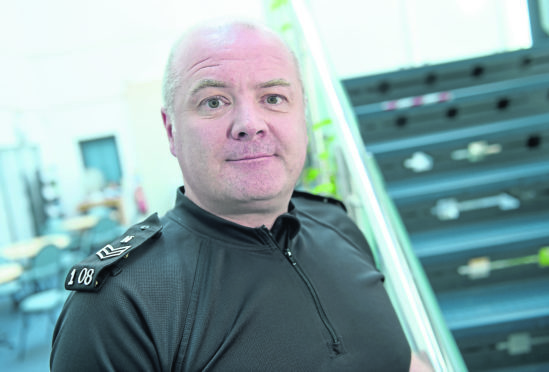Better reporting of incidents where children go missing has contributed to a 15.5% rise in missing persons investigations in the Highlands this year compared to last.
A total of 1,131 missing person investigations were recorded across the region compared to 979 the previous year. The number of people who went missing also rose by 13.4% to 670, with 130 of those disappearing more than once.
There were 399 responses to “looked after children” – those in the care of Highland Council – disappearing from care over the year to April, with 218 investigations the year before.
The latest figures also showed 368 investigations into a missing “child” running away from home this year – an increase of 57 inquiries.
Highlands and Islands missing persons co-ordinator, Sergeant David Campbell, said: “The increase in 16-, 17- and 18-year-olds going missing on the whole can be put down to better reporting standards and being far tighter on how instances are recorded and managed.”
Mr Campbell, who has been in the role since March, said a few children tend to go missing on several occasions and that the majority return within 24 hours.
Return interviews are carried out to glean more information and build up a picture of individual issues and the prevention work needed.
He said officers are now working closer with partner agencies and children’s care home staff and gaining a better understanding of why children are going missing.
This involves prevention and intervention officers and youth offending teams spending more time talking to the children concerned, including explaining the risks of alcohol misuse and dangers of sexual exploitation.
When asked about the impact of a rise in missing children investigations on police resources, he said: “The primary issue here is keeping children safe, so police have responsibility to make sure that happens by taking all the necessary steps.
He added: “We will work tirelessly for any missing person inquiry reported to us.”
Kate Forbes MSP described the number of people reported missing in the Highlands as “deeply upsetting,” stressing that the consequences for friends and family left behind must be devastating.
The rise in missing person investigations concerning children may also be partly down to the Police Scotland National Missing Persons Database definition of a child changing from under-16 to under-18 for the latest annual figures.
The figures, published in a policing performance report which went before councillors last month, showed that “adult” missing person investigations fell from 344 to 252 year-on-year. Responses to “cared-for adults” rose from 106 to 112 cases.
In May, north residents were urged by police to download a free app to help trace missing dementia sufferers.
The Purple Alert app, launched last year by Alzheimer Scotland, provides community alerts when a person with dementia is reported missing by sharing information, such as their location and possible sightings.
